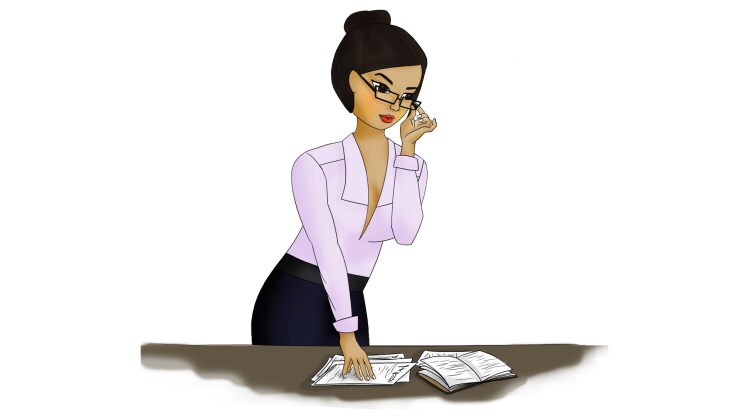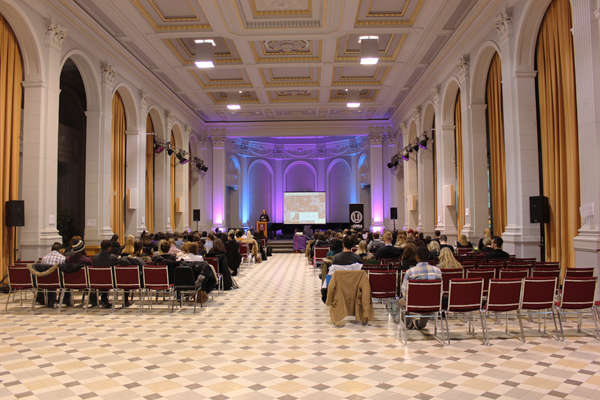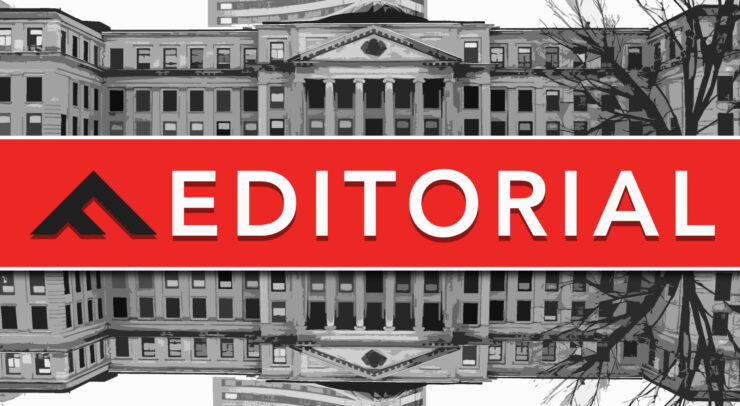Concerns over mental health, election fraud and allegations of unjust system arise
The Carleton University Students’ Association (CUSA) held the voting for its first-ever entirely online general election this past week.
Campaigns for both councillor and executive positions began in January and concluded in early February of 2021. However, campaigns were briefly suspended in the days leading up to the election due to issues ranging from online harassment and electoral fraud to allegations of an unjust system.
The acknowledgement of these problems began in the early morning of Jan. 30, when then CUSA presidential candidate, Matthew Gagne, shared a livestream on his personal Instagram account at 1 a.m.
During the livestream, Gagne, one of six candidates on the Ravens United slate, described how a candidate had been struggling with their mental health as a result of harassment during their campaigning, according to the Charlatan.
Gagne shared his concerns saying, “this election has crossed a line,” and announced Ravens United would be suspending their campaign for the remainder of the weekend. The slate resumed campaigning on Feb. 1. up until the beginning of the voting period on Feb. 3.
“We cannot continue campaigning in the state that this election is currently in,” he said during the livestream according to the Charlatan’s article. The livestream was then reposted to the Ravens United Instagram page, but the video, along with the page, have since been deleted.
According to a call of action written by Emily Sowa and Jordan Vecchio two current CUSA councillors, the online harassment and bullying allegedly included telling the candidate to harm themselves, as well as the use of a derogatory homophobic slur.
CUSA’s election office then posted on Instagram urging all candidates to suspend all forms of campaigning and not post anything related to the elections.
“Mental health does not, and should not, come second to student politics,” read the post.
Request for university administration to step in
CUSA’s Instagram post also went on to say that they are calling upon the university to take action in the situation.
The harassment appears to have come from members of the Carleton student body who used anonymous burner accounts to post comments on candidates’ posts and send them direct messages. There was no link between these individuals and CUSA a part from their automatic membership as Carleton students.
Subsequently, Sowa and Vecchio’s call to action was written, published and shared by the two CUSA public affairs councillors, calling on the university administration to intervene. The call to action was signed by 70 students involved in student government and organizations — including current CUSA president Kathleen Weary.
The two councillors were both aware of the extent of the online environment before the events of last weekend.
While Sowa and Vecchio were not on the receiving end of the harassment, both had friends who were.
“I was hearing from them that they were getting these very, very disturbing comments and messages,” said Vecchio.
“This isn’t about politics, this is about people’s well being,” said Sowa.
Both Vecchio and Sowa decided that the comments and messages crossed a line, resulting in their decision to write the call to action. They studied and based the call to action off of the human rights codes and ethics that Carleton outlined and expected all students to respect.
They laid out four demands in the call to action, these were; that the university be tasked with taking down all anonymous accounts regarding the election, that all posts on all social media platforms regarding the candidates that are deemed hateful or disrespectful be investigated and acted upon, that if the identities of the students behind the anonymous accounts be found that they face disciplinary action and the university extends mental health and wellness resources.
Sowa made sure to establish that there is a difference between criticism of a candidate and outright hatred.
“Homophobia is not criticism, telling someone to go harm themselves is not criticism … there is a very bold line, depending on which side is scrutiny versus hate. And that has been crossed too many times,” she said.
Both Sowa and Vecchio believe these incidents speak to a larger cultural problem on Carleton’s campus when it comes to bullying and harassment.
Both believe the mask of anonymity provided by online elections has given these individuals the confidence that they otherwise would not have had in previous years.
Additional candidate violations
In addition to the harassment from the greater student body, multiple candidates themselves have been in hot water for their actions during the campaign period.
In light of the harassment, Alexa Chamick, the chief electoral officer for CUSA elections released a statement on Jan. 27 calling upon candidates to focus on “positive elections and positive campaigning.”
“Positive campaigning entails the encouragement of informing students why they should vote for a candidate. In contrast, negative campaigning attempts to inform students why they should not vote for another candidate,” read the statement.
The statement went on further to say “the Electoral Officers urge candidates and students across Carleton University’s community to act respectfully and responsibly, so as to minimize bullying, slandering, harassment, and negative comments.”
However, just over a week later, it was reported by the Charlatan that five electoral violations had been issued by the last day of the elections (Feb. 4).
Violations were issued to five different candidates, they included mass-messaging students, “undermining the integrity of the electoral process,” (a voting day policy which does not allow candidates to try to persuade students to vote for a specific candidate or slate) and a social media violation.
Ravens United vice-president Ahmad Hashimi was issued two violations, including defacing a candidate online and campaigning in private areas.
In addition to the environment of negativity and harassment that has enveloped this year’s CUSA elections, allegations of an unjust system were brought forward by Tianna Thomas, an independent candidate who dropped out of the race.
In a lengthy Reddit post on the r/CarletonU subreddit, Thomas who was running for the position of vice president student engagement, said the reason she dropped out was “a direct consequence of CUSA’s corruption and terribly unjust election system.”
Thomas cited issues with the vagueness and clarity when it comes to election rules and procedures, but that they were “designed, in the light of an online election, to favor a social hierarchy and guarantees that the most popular and well-liked candidates are the only ones who can excel.”
Candidates are only allowed to campaign on Instagram, Facebook and Twitter, while sites like Reddit and Discord are restricted.
Thomas also cited the issue of slates, saying that the elections are designed to essentially ensure the success of slates which are composed of six candidates running a campaign together, such as Ravens United.
As a slate, students are allowed to pool money and resources together, essentially having an upper hand over students running independently.
“I ran as an independent this year, I had a max budget of $400 and I did my campaign 100 per cent by myself. I made all my own content, ran all my own live sessions, messaged and followed students totally alone,” said Thomas in the post.
“I was forced to go up against candidates that combined had $2,400 to spend and collectively had six times the followers I did and could work six times faster.”
Voting took place Feb. 3 and 4 with the unofficial results being announced the following day. All six positions for the CUSA executive were won by the Ravens United slate.





